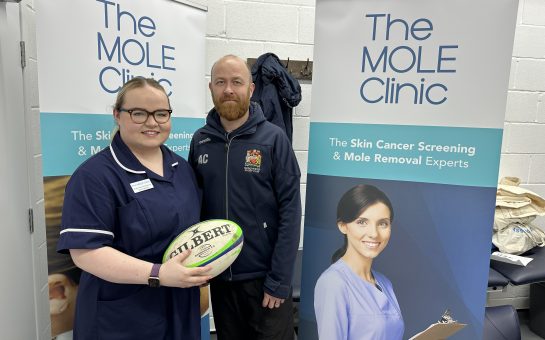Is your sex life suffering because you can no longer get it up? Is a night in with the missus just not what it used to be?
Well, you may be no spring chicken but you can put a spring back in your step by popping this little blue pill. Viagra – it will solve all your problems in the bedroom… or will it?
Apparently not, according to the latest study of impotency in elderly gentleman from The University of Manchester and NatCen Social Research.
Drugs, clinically known as oral phosphodiesterase type 5 inhibitors (PDE5i), have become the first-line medical treatment option for sufferers of erectile dysfunction (ED) since entering the UK market in 1998.
And while an abundance of studies have shown the effectiveness of such drugs, Manchester Uni’s new paper on the responses of more than 2,600 English men, aged between 50 and 87, suggest that restoring erectile function pharmacologically is not a ‘super-fix’.
Older sufferers of ED who had used Viagra, or similar drugs such as Cialis and Levitra, still expressed concern or dissatisfaction with their sex lives.
And lead author Dr David Lee said that GPs have a ‘responsibility’ to encourage their patients to take a ‘more holistic and more rounded’ approach to dealing with the problem.
The Age UK fellow for the university told MM: “Drugs like Viagra – we know they work as far as the functional side is concerned – but a lot of the men we spoke to noticed no improvement in their sexual gratification despite having the functional side back.
“Gains relating to sexual activity and function are not mirrored by lower levels of concern and dissatisfaction with sexual health and relationships.
“So instead of just using drug treatment to deal with penile function we need a more holistic approach and the provision of additional information.
“We need a treatment process that goes over and above saying ‘here’s a pill to pop’.
“Yes, men are getting function back by taking Viagra or similar drugs but what about their interaction with their partner? The medication is only alleviating half of the problem.
“Many of the men we spoke to had higher expectations of how it would help with their ordeal but it is clear from their accounts that the issue is not being sufficiently dealt with.
“It is important that health professionals act on this and offer a more rounded approach to managing ED.
“This should include a well-informed patient with realistic expectations, support from his partner, and an improved assessment of any psychological or relationship issues that may exacerbate sexual concerns and dissatisfaction.”
Of more than 2,600 50-87-year-old males that took part in the study, 7% reported using a PDE5i drug to enhance their erections over the past three months, while 21% reported that they had untreated ED.
Although 80% of PDE5i users reported the drugs having a positive effect on their sex lives, when compared to those men without ED, they consistently reported higher levels of concern and dissatisfaction with various aspects of their sexual activity, function and relationships.
So why is it that this group of drugs is not providing customer satisfaction despite restoring their penile function?
“The causes of erectile dysfunction are fairly complex and are either physiological or psychological. The psychological causes can be the likes of depression and anxiety,” said Dr Lee.
“We also found that PDE5i users and those men with untreated ED were more likely to report high blood pressure and diabetes.
“Clinicians should be open to discussing with male patients the potential side effects on erectile function of commonly prescribed medications for chronic conditions such as hypertension and Type 2 Diabetes.
“It is the side effects of these other commonly prescribed drugs like anti-depressants and anti-anxiety medications that can have a knock-on effect that may lead to erectile dysfunction.”
Dr Lee explained that this tendency to over-prescribe Viagra, instead of explore the intimacy and relationship problems that might actually be causing an unhappy sex life, only got worse when the drug’s patent ran out.
The UK patent for the little blue pill, manufactured by American firm Pfizer, ran out in July 2013 leading to a dramatic price drop as they were forced to compete against dozens of generic rivals.
Not only are these pharmaceutical treatments for impotency now sold at a competitive price, but they are also incredibly safe, according to Dr Lee.
“That group of drugs have a very, very good safety profile, providing they are prescribed and any other health problems are taken into account. If you use them in the correct context they are safe,” he said.
“Historically there has not been anything that deals with this problem as easily as this group of medication.
“So when the brand dropped their patent and the drug became much cheaper doctors started prescribing it more often.
“Far more men, and younger men, are being offered this as the first line of therapy but there has to be an awareness that the treatment regime has to be broader.
“It is easy for them to sell it as a one-fix or super-fix. And, yes, it is good but we should not ignore the relational and the psychological. We are missing a trick with the treatment!
“It is a GP’s responsibility to provide some additional information to their patients and encourage a more rounded and nuanced approach to dealing with erectile dysfunction.
“Doctors should be pointing them towards resources and information they can explore, not alone, but with their partner.”
Dr Lee’s focus on the need to increase the awareness surrounding ED rather than suggesting more interaction with a doctor is because he thinks this is simply ‘unrealistic’.
He said: “You think of the treatment regime of any man. You book an appointment with your GP and you are normally going for a 10-15 minute slot which doesn’t lend itself to a more rounded and more holistic approach.
“And expecting this to change is unrealistic but I think there should be some more information more broadly delivered.
“Maybe online because simplifying the problem doesn’t seem to be helping since the physical dysfunction is not the whole story.”
There is also a distinct lack of (appealing) alternative treatments of impotency, at least, for the older man.
Dr Lee added: “Let’s assume we’re mostly dealing with older men, because they’re who we spoke to in the study, then the most common causes of erectile dysfunction are physical.
“And there haven’t really been any alternative treatments for this apart from… well… you can get penile injections but some people do not deal with the idea of them well, as you can imagine. The thought of popping a pill is far more appealing!”
The paper, entitled Erectile dysfunction and phosphodiesterase type 5 inhibitor use: associations with sexual activities, function and satisfaction in a population sample of older men, is published in the International Journal of Impotence Research.
Data for the study was taken from the latest wave of the English Longitudinal Study of Ageing (ELSA).
Charity Director at Age UK Caroline Abrahams said: “This research helps us to build a better understanding of older men’s concerns and needs around sexual health.
“With an ageing population it is important that providers of sexual health services understand the needs of older people in both clinical settings and when developing information and advice so this serves as another useful insight.”
NatCen Social Research is an independent, not for profit organisation which believes that social research has the power to make life better.
Age UK is the country’s largest charity dedicated to helping everyone make the most of later life, providing services, advice and support at a national and local level to inspire, enable and support older people.
To find out more about maintaining a healthy sex life, including advice on sex and relationships and information about sexual health, people can visit the Age UK website.
People can also contact their GP with any sexual health questions or concerns.
Image courtesy of tup wanders and Tim Reckmann with thanks.



